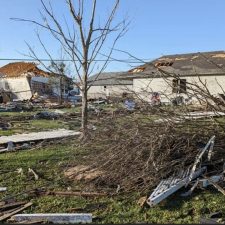
In its simplest terms, an insurance policy is a contract whereby one party (the insurer) agrees to pay money to another party (the insured) if some specified conditions arise. There are countless types of insurance policies that can be purchased, including, to name just a few of them, auto insurance policies, uninsured/underinsured motorist policies, commercial general liability policies (also called “CGL” policies), homeowner’s policies, and flood policies.
Interpreting insurance policies can prove to be a cumbersome and technical process. Here are a few (of the many) things to keep in mind when you are looking at an insurance policy
Key Questions When Interpreting Insurance Policies
1. What Is The Scope of Potential Coverage?
It is first necessary to understand what will trigger coverage under an insurance policy. A wide range of occurrences can trigger insurance coverage, everything from an auto accident or truck accident to a tree falling on your house. For example, some CGL policies will cover personal injury and property damage caused by an “accident.” Some homeowner’s policies cover “all risk of physical loss” to the property, unless otherwise excluded.
In addition to the terms of coverage, some policies may have different limits available for different types of losses. For purposes of evaluating a claim, regardless of whether it involves injuries, property damage, or business losses, you will want to know the applicable policy limits.
2. What Is Excluded?
Every policy will have specific exclusions that will allow an insurance company to avoid having to pay for a loss, even if the loss came within the scope of potential coverage. For example, some homeowner’s policies will exclude losses caused by ordinary wear and tear or from gradual settlement of the property. Policies contain a multitude of different exclusions and even the same exclusion can have a different scope from one policy to the next. But, it is important to keep in mind that the insurer generally has the burden of proving that an exclusion applies.
3. What Are Your Duties After A Loss?
Policies include specific provisions that list an insured’s duties following a loss. Some of these may include promptly notifying the insurance company of the claim, reasonably cooperating with the insurance company in the investigation of the loss, making the damaged property available to the insurance company, and providing documentation requested by the insurance company. Insureds should always be mindful of these duties because insurance companies may argue that failure to comply with them could impact coverage.
Also, some policies have provisions that deal with when an insured can file suit against an insurance company. These provisions may specify what must be presented to the insurance company before a lawsuit can be filed and may also set forth a time period for the filing of a lawsuit. You should review these provisions immediately to understand your rights and obligations insofar as the filing of a lawsuit is concerned.
Contact a Louisiana Insurance Lawyer Today
If you have been injured in an accident, suffered damage to your property, or suffered business losses, you may be able to get insurance coverage for your damages. Call The Mahone Firm today at (504) 564-7342 to discuss your potential claim with a Louisiana insurance lawyer. There is no charge for a consultation.






